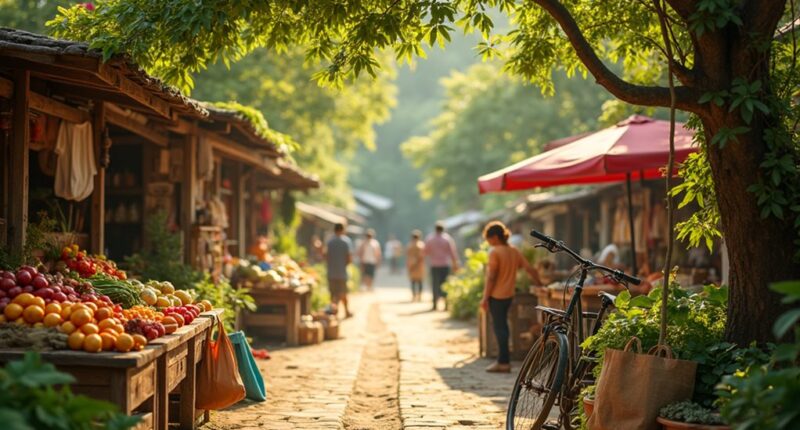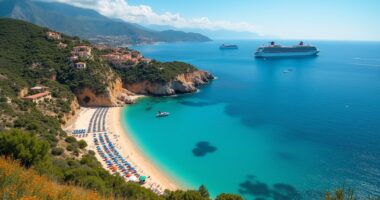As tourism’s impact on local communities stirs up concerns, travelers are swapping carefree getaways for eco-smart adventures, with 75% planning sustainable trips by 2025—think of it as giving Mother Nature a well-deserved break. Gen Z leads the pack, favoring hotels with green badges, like VIP passes for the planet, while slow travel cuts emissions by lingering longer in fewer spots. It’s a clever shift, blending fun with responsibility, much like upgrading from fast food to a gourmet feast. Keep exploring these trends for even greener getaway ideas.
Reimagining Sustainable Travel
As the world awakens to environmental realities, how can we reimagine our holidays to leave a lighter footprint on the planet?
Travelers are shifting gears, ditching the old rush-and-crash routine for smarter, greener adventures.
Take the latest trends: by 2025, a whopping 75% of globetrotters plan to travel more sustainably, cutting energy use by 57% on trips.
By 2025, a whopping 75% of globetrotters are embracing sustainable travel, slashing energy use by 57% on trips!
It’s like Gen Z and Millennials are the new eco-sheriffs, leading the charge with booking sites that spotlight hotels’ green badges—boosting visibility faster than a viral TikTok.
Eco-friendly digs are stealing the show, with 65% of travelers favoring places sporting certifications like Green Key.
Imagine solar-powered resorts, where zero-waste boutique stays turn recycled materials into cozy havens—think treehouses that whisper secrets of the jungle or shipping container hotels that repurpose junk into chic retreats.
Giants like Marriott and Hilton are gunning for net-zero by 2050, complete with rainwater systems and biodegradable soaps.
It’s not just luxury; it’s smart living, like nature’s way of saying, “Hey, let’s not waste the planet’s lunch.”
Enter the slow travel movement, a welcome change for overworked destinations.
This isn’t about zipping through checklists; it’s lingering longer in fewer spots to slash transit emissions—60% of folks are opting for extended stays, per a 2024 WTTC survey.
With remote work fueling digital nomad vibes, places like Barcelona see less strain as visitors bond with local vendors. This surge is highlighted by the 82% increase in ‘working nomad’ searches by Brits in 2024, according to Accor.
Picture it: instead of a whirlwind tour, you’re sipping coffee in a Paris café, supporting the community without the carbon chaos. To enhance these longer stays, properties are increasingly recommending frequent housekeeping to ensure a comfortable and sustainable experience for guests.
Carbon-neutral transport is the unsung hero here, with flight-free escapes and hikes gaining traction.
Airlines are experimenting with sustainable aviation fuel—think of it as jet fuel’s eco makeover, powering planes without the guilt.
And don’t overlook cultural impacts: travelers now seek authentic experiences, learning from indigenous communities while minimizing harm.
It’s like choosing a heartfelt chat over a rushed selfie session.
More travelers are embracing mindful tourism practices that respect local customs while contributing positively to destination economies.
Emerging offerings, such as “The Nature Lover Package,” bundle organic meals and sleep-focused amenities—70% of luxury seekers demand them.
With eco-certifications like EarthCheck adding transparency, regulations are pushing the industry forward.
In this enthusiastic pivot, holidays aren’t just escapes; they’re a chance to heal the world, one mindful step at a time.









